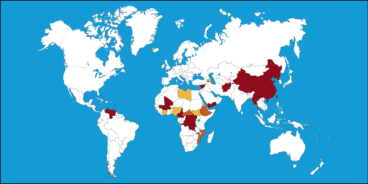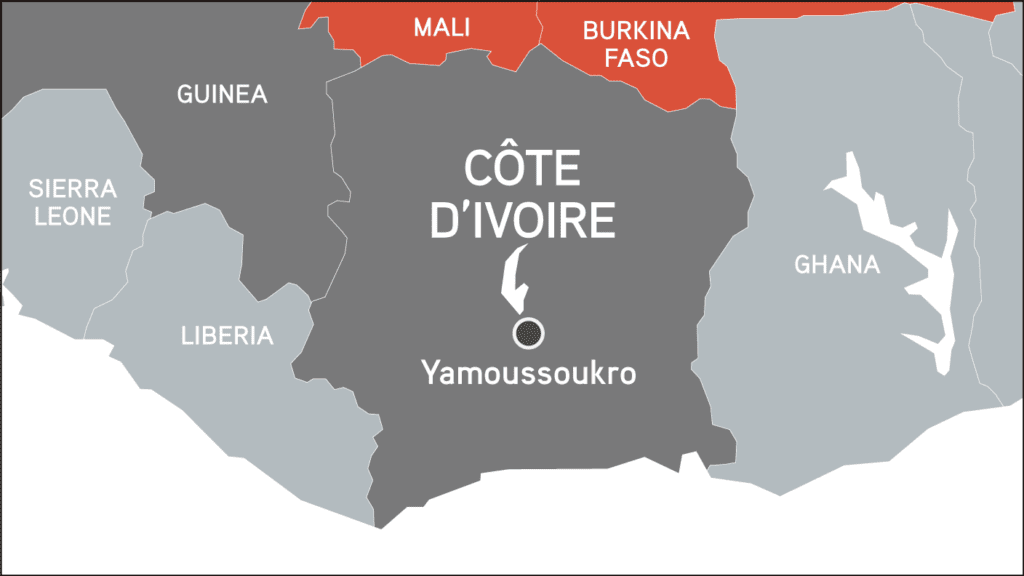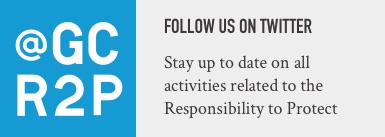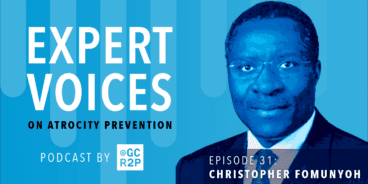
Côte d’Ivoire
Increased hate speech and political instability following the October 2020 presidential elections in Côte d’Ivoire leaves populations at risk of inter-communal violence and potential atrocities.
BACKGROUND
On 31 October 2020 Côte d’Ivoire held presidential elections amidst significant political unrest. According to government figures, at least 85 people were killed between August and November in political and inter-communal violence between supporters of incumbent President Alassane Ouattara, security forces and opposition protesters. On 9 November the Constitutional Council ratified President Ouattara’s re-election, winning 94 percent of the vote. The main opposition parties boycotted the contentious election.
The months preceding the election were marred by sporadic violence, hate speech aimed at manipulating ethnic differences for political ends and heightened tensions. The Office of the UN High Commissioner for Human Rights also noted an increase in violence against protesters by security forces and unidentified individuals during October. Clashes between opposition and government protesters continued after the vote and resulted in thousands of people fleeing to Liberia, Ghana and Togo. During March 2021 Amnesty International reported that hundreds of people, including activists, protesters, opposition supporters and alleged perpetrators of violence, remain in prison after being arrested during violence and election-related protests. Some detainees have reported human rights violations linked with the judicial process, including allegations of torture or other ill-treatment.
On 14 December Ouattara was inaugurated and announced the creation of a ministry responsible for strengthening national cohesion and reconciliation. During December the government and opposition engaged in dialogue to reach consensus on the path forward for legislative elections in March 2021.
Côte d’Ivoire has a history of civil war and election related violence during which atrocities were committed. Following the November 2010 presidential elections, when then-President Laurent Gbagbo refused to cede power, security forces and rival militias loyal to either Gbagbo or Ouattara targeted perceived ethnic and political enemies, killing an estimated 3,000 people. Atrocities ended following an international military intervention authorized in March 2011 by the UN Security Council in Resolution 1975.
ANALYSIS
Although Côte d’Ivoire underwent a reconciliation process and the UN withdrew its peacekeeping mission in the country (UNOCI) in June 2017, the underlying ethnic and political tensions that led to the outbreak of electoral violence in 2010-2011 remain. Recent unrest has exposed long-standing grievances that the reconciliation process failed to address. Most individuals who perpetrated past atrocities have not yet been held accountable, threatening the long-term stability of the country.
Election observers noted serious concerns regarding restrictions on civil and political liberties, warning that these problems may lead to democratic backsliding in Côte d’Ivoire. Security forces failed to adequately protect civilians and prevent violence during the 2020 elections period, and occasionally utilized excessive force to disband opposition protesters.
The Ivorian government is struggling to uphold its responsibility to protect and should request assistance from Economic Community of West African States (ECOWAS) and other regional partners.
INTERNATIONAL RESPONSE
Following an arrest warrant, on 30 November 2011 former President Gbagbo was handed over to the International Criminal Court (ICC), where he was tried and acquitted alongside his Minister of Youth, Charles Ble Goude. On 31 March 2021 the Appeals Chamber of the ICC confirmed their acquittal.
On 9 November 2020 the UN High Commissioner for Human Rights, Michelle Bachelet, urged all sides in Côte d’Ivoire to refrain from incitement to violence and to engage in meaningful dialogue to resolve the crisis. ECOWAS urged all Ivorians to prioritize social cohesion and to resolve differences through legal channels. The European Union and African Union also called for dialogue.
NECESSARY ACTION
All political leaders must refrain from inciting violence against anyone on the basis of their political affiliation or ethnic identity. The Ivorian authorities must ensure that all human rights violations and abuses during the election period are thoroughly investigated and the perpetrators held accountable, regardless of political affiliation.
The government must address long-standing grievances through dialogue and policies aimed at enhancing social cohesion and reconciliation.
Related Content

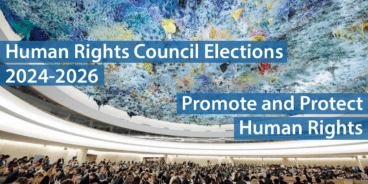
UN Human Rights Council Elections for 2024-2026 and the Responsibility to Protect
